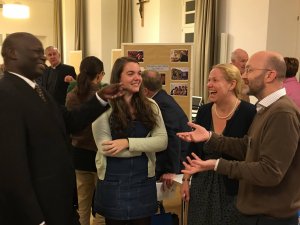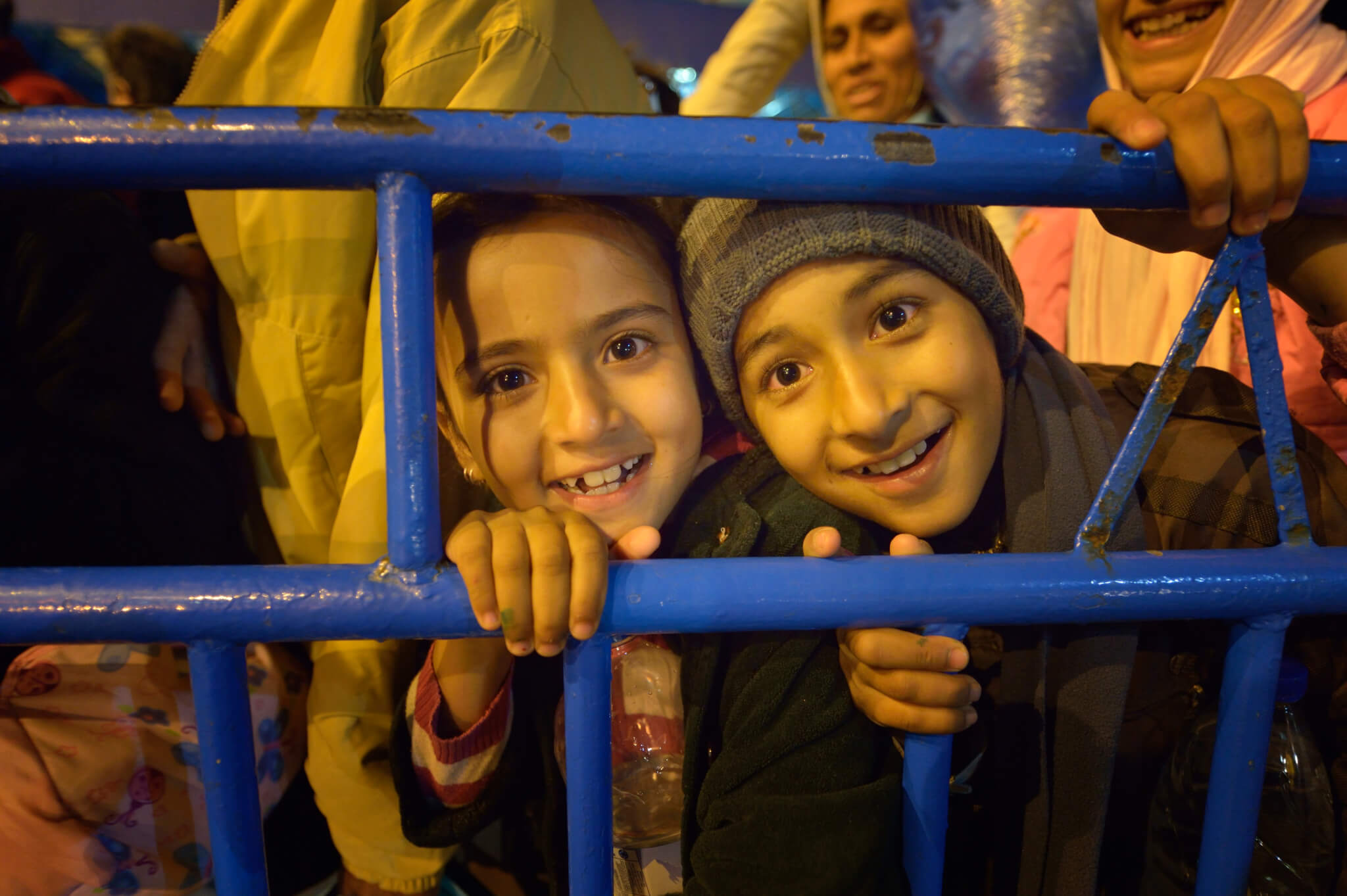An webinar hosted by the Anglican Alliance saw participants engaging with presenters online to talk about how the Church can best respond to the current refugee crisis taking place across Europe.
Watch a recording of the webinar here
Partnership between the Church and other organisations was highlighted by all presenters as a key element of success in efforts to help refugees arriving in Europe.
Participants heard from Janette O’Neill, Chief Executive at USPG; Daniela Morales, Program and Volunteer Coordinator at Joel Nafuma Refugee Center (JNRC) in Rome; Allison Duvall, Program Manager for Church Relations at Episcopal Migration Ministries (EMM); and an advocate and refugee from Afghanistan who is now living in Europe.
Presenters tackled issues such as addressing hostility in the local community, forming partnerships with other organisations working with refugees, helping refugees integrate with host communities, and ways in which refugees can enrich the life of the church.
The webinar – ‘Refugees in Europe: How can the Church help?’ – took place on Thursday 13th October 2016 after a consultation brought together representatives from across Europe and the United States to discuss the Church’s unique role in reaching out to refugees and migrants.
Anglican Alliance Co-Executive Director Rachel Carnegie opened the webinar with a prayer, and Janette O’Neill began the presentations speaking about ways the Church can welcome refugees. She said, “We can assert Gospel values by caring for the most vulnerable.”
Janette went on to discuss the different gifts the Church can offer, with an emphasis on forming relationships and providing spiritual support as well as material assistance. She also emphasised the value of partnerships, saying, “No-one can do this alone … by working together we can do so much.”
Daniela Morales went on to speak on the work of the JNRC in Rome, again emphasising the importance of partnerships with other organisations working with refugees, particularly ecumenical initiatives, NGOs and government services. She said, “We cannot do this alone.”
 Participants then heard from Binyamin (not his real name), a refugee from Afghanistan who had spent eight years travelling across Europe trying to find somewhere to settle. With support from a church-based refugee centre he was able to access legal aid, find accommodation and eventually resume his education. Like many refugees coming into Europe, education and access to the workforce is a top priority.
Participants then heard from Binyamin (not his real name), a refugee from Afghanistan who had spent eight years travelling across Europe trying to find somewhere to settle. With support from a church-based refugee centre he was able to access legal aid, find accommodation and eventually resume his education. Like many refugees coming into Europe, education and access to the workforce is a top priority.
Binyamin highlighted the two way relationship between the Church and refugees, speaking about the skills that refugees have to offer, as well as the important practical ways in which the Church can support refugees settling in their communities.
A final presentation from Allison Duvall introduced the work of EMM, which works in partnership with the government to help resettle refugees in the United States.
Allison noted the importance of working with local agencies and called on churches to think about what they could offer. She urged churches to spend time ‘asset mapping’ or discerning their church’s gifts, considering how these could be used to welcome refugees to the community.
Allison also highlighted how welcoming refugees is a mutual process that hugely benefits the church as well as those arriving. She called on churches to tell their stories and help change the negative narrative around refugees and migrants.
Poll questions throughout the webinar had engaged participants who contributed their experiences, and a question and answer session followed the presentation to deepen the discussion.
Many webinar participants were keen to know of more practical ways in which their church could be involved both in supporting refugees arriving in their areas, and also in supporting the work of the churches across Europe.
Allison Duvall urged American supporters to get in touch with Episcopal Migration Ministries, and find out ways to support their work resettling refugees in the United States.
She also encouraged churches to make connections with services already available to refugees in their local area, noting the ‘Refugee Aid’ app, which provides information for refugees and NGOs.
Janette O’Neill also invited participants to support the work churches in Europe through USPG’s partnership with the Diocese in Europe.
You can also find out more about the work of Church of England chaplaincies in Europe through the Diocese of Europe website. Similarly the churches of the Episcopal Convocation of Europe have an active ministry with refugees.
Other questions highlighted the complexity of the refugee crisis, with participants asking if more foreign aid to refugees’ countries of origin would better address the crisis.
Another asked if and how different cultural attitudes to the status of women should be addressed when resettling refugees.
Answers from presenters focused on the need for compassion and understanding. Daniela said, “It is important to deal with the situation in front of us and help where we can,” whilst recognising the need for a deeper and more nuanced discussion.

